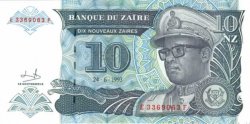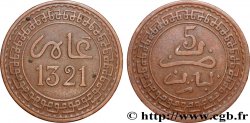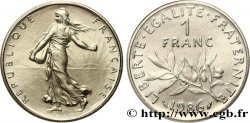Back 1/1
E-auction 607-582668 - fme_961099 - III REPUBLIC PHILIPPE DUC D’ORLÉANS, frappe médaille module de 10 centimes
You must signin and be an approved bidder to bid, LOGIN TO BID. Accounts are subject to approval and the approval process takes place within 48 hours. Do not wait until the day a sale closes to register. Clicking on « bid » constitutes acceptance of the terms of use of cgb.fr private e-auctions.
Bids must be placed in whole Euro amounts only. The sale will start closing at the time stated on the item description; any bids received at the site after the closing time will not be executed. Transmission times may vary and bids could be rejected if you wait until the last second. For further information ckeck the E-auctions F.A.Q.
NO BUYER'S FEE.
NO BUYER'S FEE.
| Estimate : | 12 € |
| Price : | 8 € |
| Maximum bid : | 9 € |
| End of the sale : | 02 December 2024 20:54:40 |
| bidders : | 5 bidders |
Type : PHILIPPE DUC D’ORLÉANS, frappe médaille module de 10 centimes
Date: 1899
Metal : brass
Diameter : 30,5 mm
Orientation dies : 12 h.
Weight : 7,76 g.
Edge : lisse
Puncheon : sans poinçon
Coments on the condition:
Patine hétérogène. Traces de frottement. Présence de quelques rayures. Coups et rayures sur la tranche
Obverse
Obverse legend : PHILIPPE DUC D’ORLÉANS 1899.
Obverse description : Son buste de trois-quarts à gauche.
Reverse
Reverse legend : JE NE VENGERAI QUE LES INJURES FAITES Â LA NATION * PHILIPPE * / SUR HUIT LIGNES : JE / REPLACERAI / MON PAYS / AU PREMIER RANG / DES NATIONS / AVEC LE CONCOURS / DE TOUS LES VRAIS / FRANÇAIS.
Commentary
Il existe une autre version très proche datée 1900 et une autre variée et datée de 1909 avec la formule Tout ce qui est national est nôtre.
Philippe, duc d'Orléans est surtout resté dans l'Histoire pour être retourné en France, en 1890, bravant ainsi les lois d'exil qui, depuis 1886, en tenaient la famille royale éloignée. Arrêté après s'être présenté au bureau de recrutement de Paris pour faire son service militaire (ce qui lui valut le surnom de "prince gamelle"), il fut condamné à deux années d'emprisonnement et expulsé. Prétendant au trône de France depuis la mort de son père, en 1894, il vécut l'essentiel de sa vie en Angleterre. Marié en 1896 à l'archiduchesse Marie-Dorothée d'Autriche, il mourut sans descendance en 1926. Ses droits dynastiques passèrent alors à son cousin Jean, duc de Guise, père du Prince Henri d'Orléans (biographie extraite de http://www.musee-orsay.fr/fr/evenements/expositions/archives/presentation-generale/browse/12/article/photographies-de-philippe-duc-dorleans-4189.html?tx_ttnews[backPid]=252&cHash=70b983c279 ).
There is another very similar version dated 1900 and another varied one dated 1909 with the formula Everything that is national is ours. Philippe, Duke of Orléans, is remembered above all for having returned to France in 1890, thus defying the exile laws which, since 1886, had kept the royal family away. Arrested after presenting himself at the Paris recruitment office to do his military service (which earned him the nickname \\\"Prince Gamelle\\\"), he was sentenced to two years of imprisonment and expelled. A pretender to the throne of France since the death of his father in 1894, he lived most of his life in England. Married in 1896 to Archduchess Marie-Dorothée of Austria, he died without descendants in 1926. His dynastic rights then passed to his cousin Jean, Duke of Guise, father of Prince Henri of Orléans (biography taken from http://www.musee-orsay.fr/fr/evenements/expositions/archives/presentation-generale/browse/12/article/photographies-de-philippe-duc-dorleans-4189.html?tx_ttnews[backPid]=252&cHash=70b983c279 )
Philippe, duc d'Orléans est surtout resté dans l'Histoire pour être retourné en France, en 1890, bravant ainsi les lois d'exil qui, depuis 1886, en tenaient la famille royale éloignée. Arrêté après s'être présenté au bureau de recrutement de Paris pour faire son service militaire (ce qui lui valut le surnom de "prince gamelle"), il fut condamné à deux années d'emprisonnement et expulsé. Prétendant au trône de France depuis la mort de son père, en 1894, il vécut l'essentiel de sa vie en Angleterre. Marié en 1896 à l'archiduchesse Marie-Dorothée d'Autriche, il mourut sans descendance en 1926. Ses droits dynastiques passèrent alors à son cousin Jean, duc de Guise, père du Prince Henri d'Orléans (biographie extraite de http://www.musee-orsay.fr/fr/evenements/expositions/archives/presentation-generale/browse/12/article/photographies-de-philippe-duc-dorleans-4189.html?tx_ttnews[backPid]=252&cHash=70b983c279 ).
There is another very similar version dated 1900 and another varied one dated 1909 with the formula Everything that is national is ours. Philippe, Duke of Orléans, is remembered above all for having returned to France in 1890, thus defying the exile laws which, since 1886, had kept the royal family away. Arrested after presenting himself at the Paris recruitment office to do his military service (which earned him the nickname \\\"Prince Gamelle\\\"), he was sentenced to two years of imprisonment and expelled. A pretender to the throne of France since the death of his father in 1894, he lived most of his life in England. Married in 1896 to Archduchess Marie-Dorothée of Austria, he died without descendants in 1926. His dynastic rights then passed to his cousin Jean, Duke of Guise, father of Prince Henri of Orléans (biography taken from http://www.musee-orsay.fr/fr/evenements/expositions/archives/presentation-generale/browse/12/article/photographies-de-philippe-duc-dorleans-4189.html?tx_ttnews[backPid]=252&cHash=70b983c279 )








 Report a mistake
Report a mistake Print the page
Print the page Share my selection
Share my selection Ask a question
Ask a question Consign / sell
Consign / sell
 Full data
Full data















